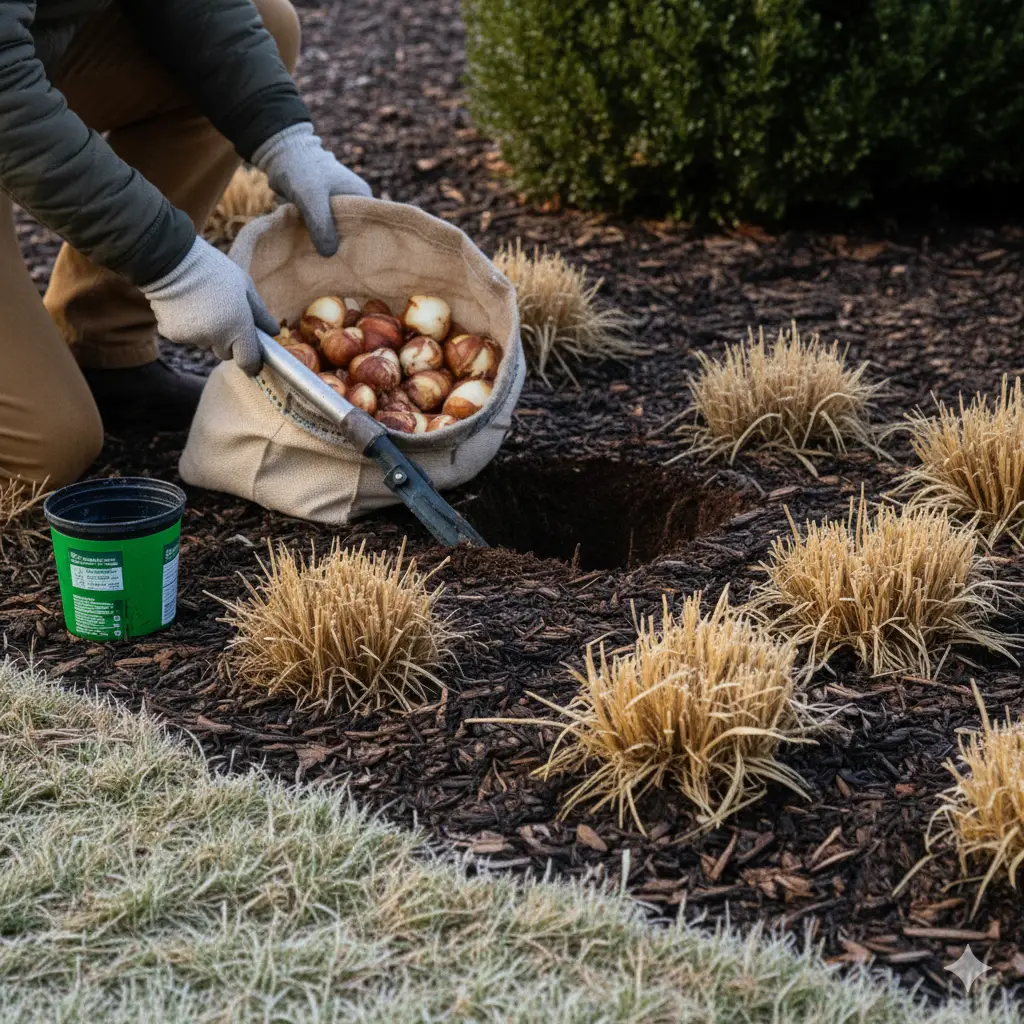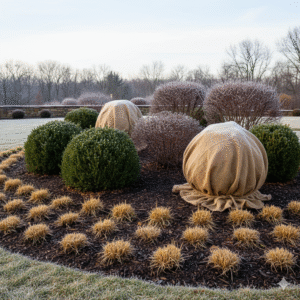Preparing Your Garden Beds for Winter, Part 1
As the crisp autumn air settles over Pennsylvania and the leaves begin their colorful transformation, savvy gardeners know it’s time to prepare their garden beds for the winter months ahead. Proper winterization not only protects your plants from harsh weather but also sets the foundation for a spectacular spring garden. At Herbein’s Garden Center, we’ve helped local gardeners winterize their beds for decades, and we’re sharing our most effective strategies to ensure your garden thrives year after year.
Why Winter Garden Bed Preparation Matters
Winter preparation is more than just tidying up – it’s an investment in your garden’s future health. Pennsylvania’s freeze-thaw cycles, heavy snow, and fluctuating temperatures can damage unprotected plants and degrade soil quality. By taking action now, you’ll prevent soil erosion, protect beneficial microorganisms, and give your plants the best chance at surviving winter dormancy.
Essential Steps to Winterize Your Garden Beds
1. Clean Up and Remove Debris
Start your winter preparation by removing dead annuals and clearing away diseased plant material. This crucial step prevents pests and diseases from overwintering in your garden. However, leave healthy perennial stems standing – they provide winter interest and shelter for beneficial insects.

2. Divide and Transplant Perennials
Fall is the ideal time to divide overgrown perennials like hostas, daylilies, and ornamental grasses. The cooler temperatures and increased rainfall help newly divided plants establish strong root systems before winter. When dividing:
- Water plants thoroughly the day before dividing
- Use sharp, clean tools to minimize damage
- Replant divisions immediately at the same depth
- Water well and apply a 2-3 inch layer of mulch
3. Add Organic Matter and Amendments
Improving your soil structure now gives it time to break down over winter, creating nutrient-rich beds for spring planting. Work in:
- Compost: Add 2-4 inches of well-aged compost
- Leaf mold: Shredded leaves make excellent soil conditioner
- Aged manure: Provides slow-release nutrients throughout winter
The USDA Natural Resources Conservation Service emphasizes that adding organic matter improves soil structure, water retention, and nutrient availability.
4. Test and Adjust Soil pH
Fall soil testing gives you time to correct pH imbalances before spring planting. Pennsylvania soils tend toward acidity, which can limit nutrient availability. Most vegetables and flowers prefer a pH between 6.0 and 7.0.
- Collect soil samples from multiple locations
- Test using a quality soil test kit or send samples to your local extension office
- Add lime to raise pH or sulfur to lower it, following package directions

5. Apply Winter Mulch
Mulching is perhaps the most critical step in winter bed preparation. A proper mulch layer:
- Insulates plant roots from temperature fluctuations
- Prevents soil erosion
- Suppresses winter weeds
- Retains soil moisture
Apply 3-4 inches of organic mulch such as shredded bark, wood chips, or straw around perennials and shrubs. Keep mulch several inches away from plant stems to prevent rot. For vegetable gardens, consider using straw or shredded leaves that can be easily incorporated in spring.
6. Plant Cover Crops
Cover crops, also known as green manure, protect and enrich bare soil through winter. These hardworking plants:
- Prevent erosion
- Add nitrogen to soil (legumes)
- Suppress weeds
- Improve soil structure
Popular winter cover crops for Pennsylvania include:
- Winter rye: Hardy and fast-growing
- Hairy vetch: Nitrogen-fixing legume
- Crimson clover: Beautiful and beneficial
The Cornell University Cooperative Extension provides excellent guidance on selecting and managing cover crops for home gardens.
7. Protect Tender Perennials
Some perennials need extra protection to survive Pennsylvania winters:
For marginally hardy plants:
- Apply extra mulch after the ground freezes
- Create windbreaks using burlap screens
- Cover with evergreen boughs for added insulation
For roses:
- Mound soil 8-10 inches high around the base
- Add mulch after ground freezes
- Consider rose cones for hybrid teas
8. Prepare Garden Tools and Infrastructure
Don’t forget about your garden infrastructure:
- Clean and oil garden tools before storage
- Drain and store hoses and irrigation systems
- Repair or replace damaged bed edging
- Check and secure plant supports and trellises
Preparing your garden beds for winter is one of the most important tasks you can undertake as a gardener. Stay tuned for part 2 of this guide, coming soon!
For more gardening tips and seasonal advice, visit Herbein’s Garden Center or stop by our Emmaus location. Our experienced staff is always ready to help you achieve gardening success in every season.





